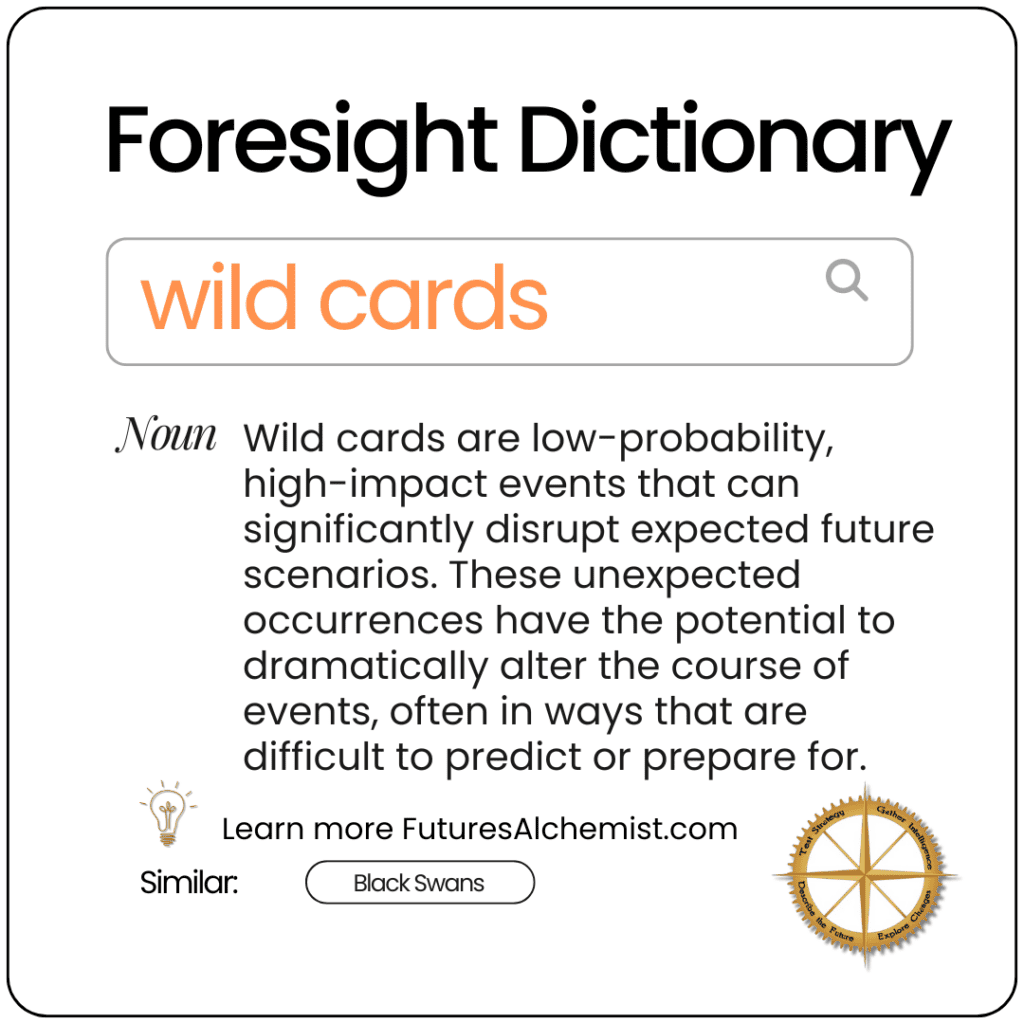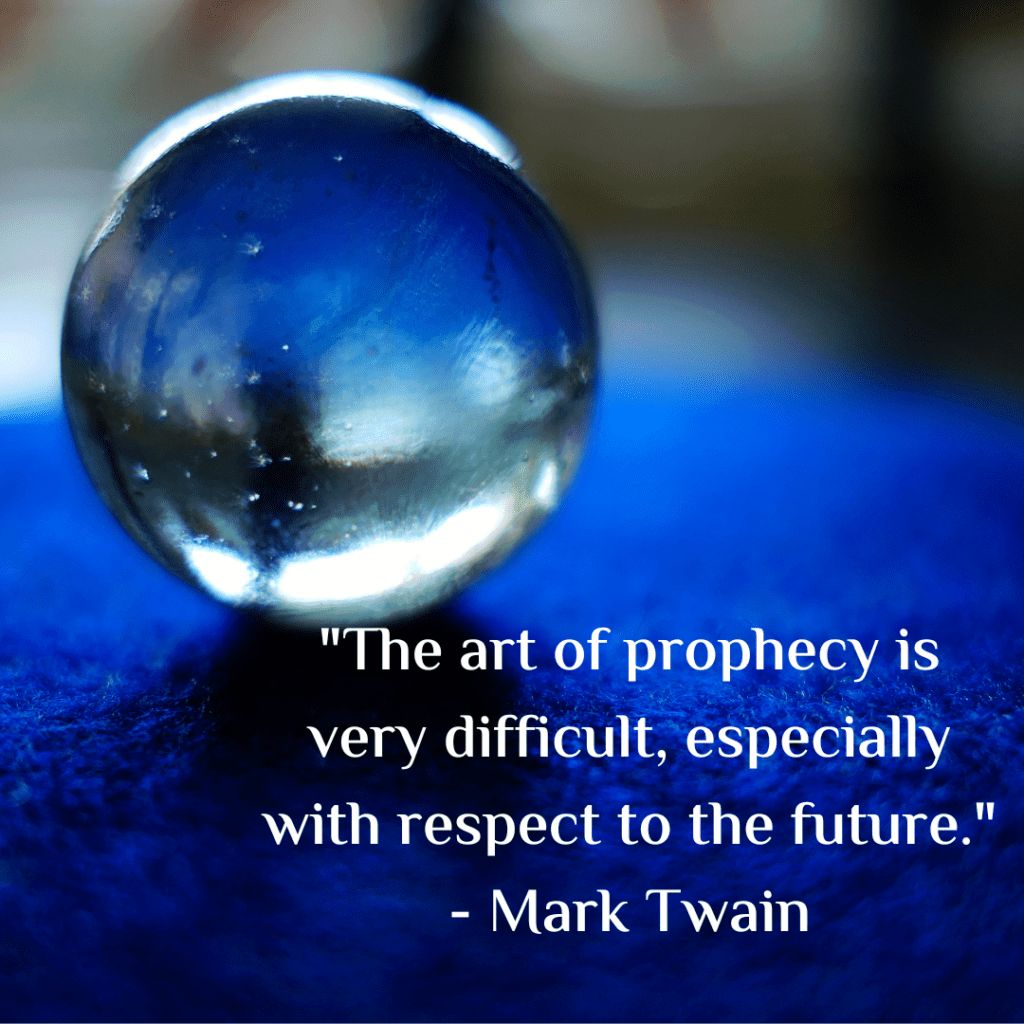

Definition
Wild cards are low-probability, high-impact events that can significantly disrupt expected future scenarios. These unexpected occurrences have the potential to dramatically alter the course of events, often in ways that are difficult to predict or prepare for.
Example
The Fukushima Daiichi Nuclear Disaster (2011):
While earthquakes and tsunamis were known risks in Japan, the combination of events leading to a major nuclear disaster was not fully anticipated.
Ask yourself
- How might current trends intersect to create unexpected outcomes?
- What assumptions am I making about the future that could be upended by a wild card event?
- What potential wild card events could significantly impact my field or industry?
- How can I improve my organization’s resilience to unexpected shocks?
- Are there any weak signals or early warning signs of potential wild cards in my environment?
Compared to Black Swan Events
- Origin and Coinage:
- Wild Cards: This term has been used in futures studies and scenario planning since at least the 1980s.
- Black Swans: Coined by Nassim Nicholas Taleb in his 2007 book “The Black Swan: The Impact of the Highly Improbable”.
- Predictability:
- Wild Cards: Often considered to be somewhat foreseeable, even if unlikely. They can sometimes be anticipated through careful analysis and horizon scanning.
- Black Swans: By definition, are unpredictable and cannot be anticipated based on past experiences or knowledge.
- Frequency of consideration:
- Wild Cards: Regularly included in scenario planning exercises and foresight studies.
- Black Swans: Often excluded from risk assessments and planning due to their perceived impossibility.
- Impact:
- Wild Cards: High-impact events, but the scale can vary.
- Black Swans: Extreme impact events that reshape our understanding of the world.
- Retrospective predictability:
- Wild Cards: May or may not seem obvious in hindsight.
- Black Swans: Appear obvious and explainable after they occur, leading to retrospective predictability bias.
- Scope:
- Wild Cards: Can be positive or negative events.
- Black Swans: Typically associated with negative, catastrophic events, although Taleb’s original concept included positive events as well.
- Use in planning:
- Wild Cards: Often used proactively in strategic planning to enhance organizational resilience.
- Black Swans: Used more to highlight the limitations of prediction and the need for robustness against unknown risks.
In essence, while both concepts deal with unexpected, high-impact events, Wild Cards are more about expanding our consideration of possible futures, while Black Swans emphasize the inherent limitations of our predictive capabilities and the need to build systems that are resilient to the unknown.
Tools
- Delphi Method: Useful for gathering expert opinions on potential wild card events.
- Horizon Scanning: Aids in identifying weak signals that might indicate emerging wild cards.
- Axes of Uncertainty: Demonstrating how intersections of events can create new situations.
- Futures Wheel: Assists in mapping out the potential consequences of a wild card event.





